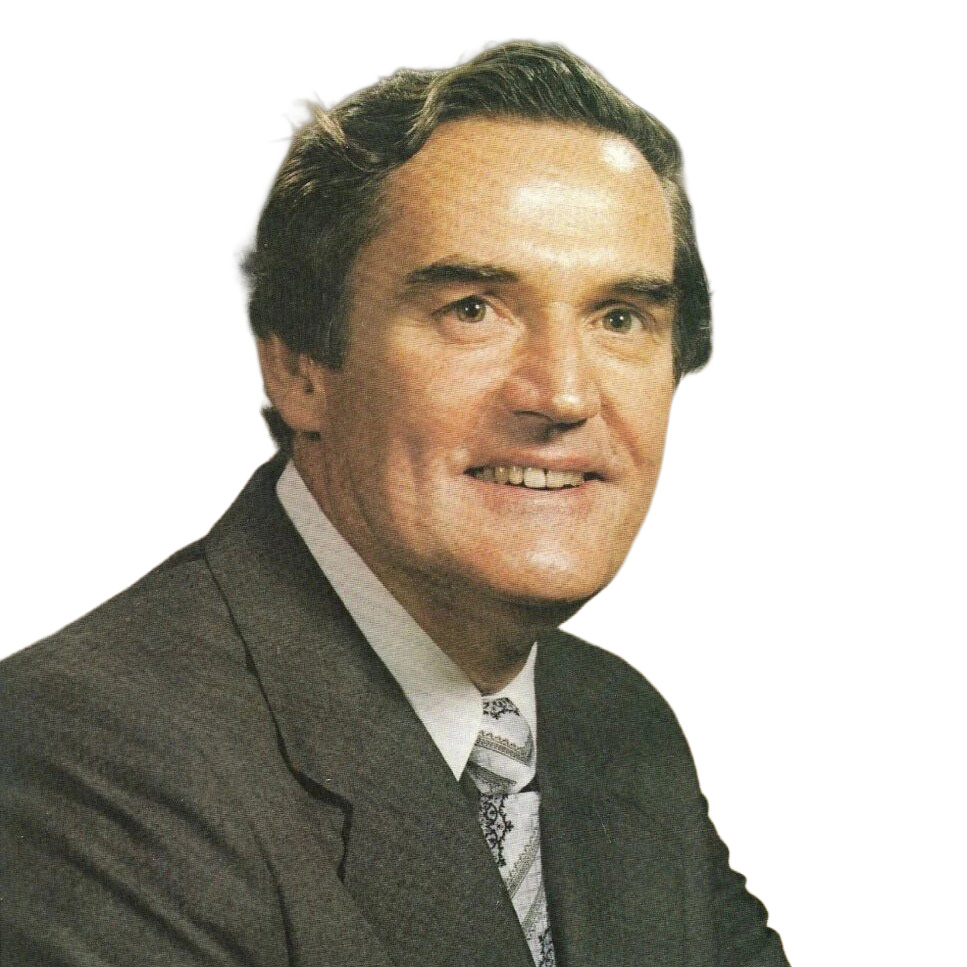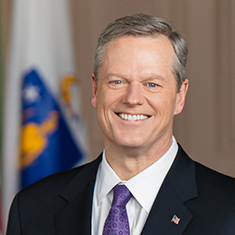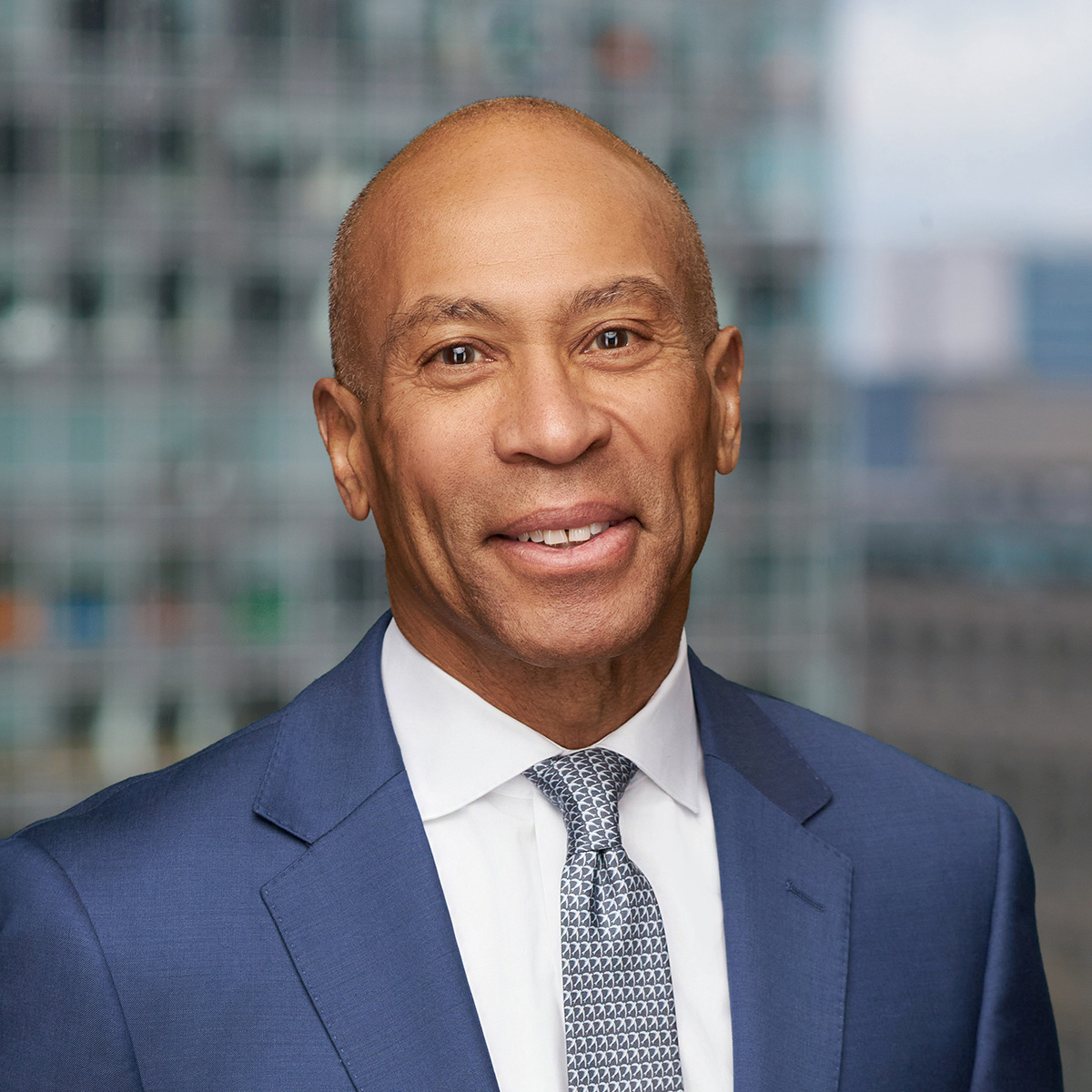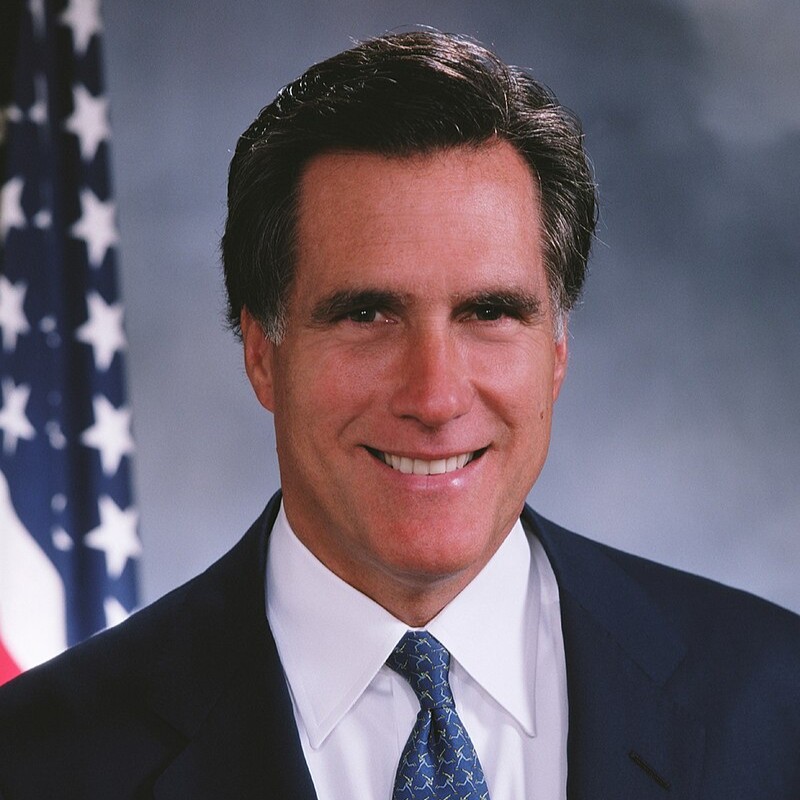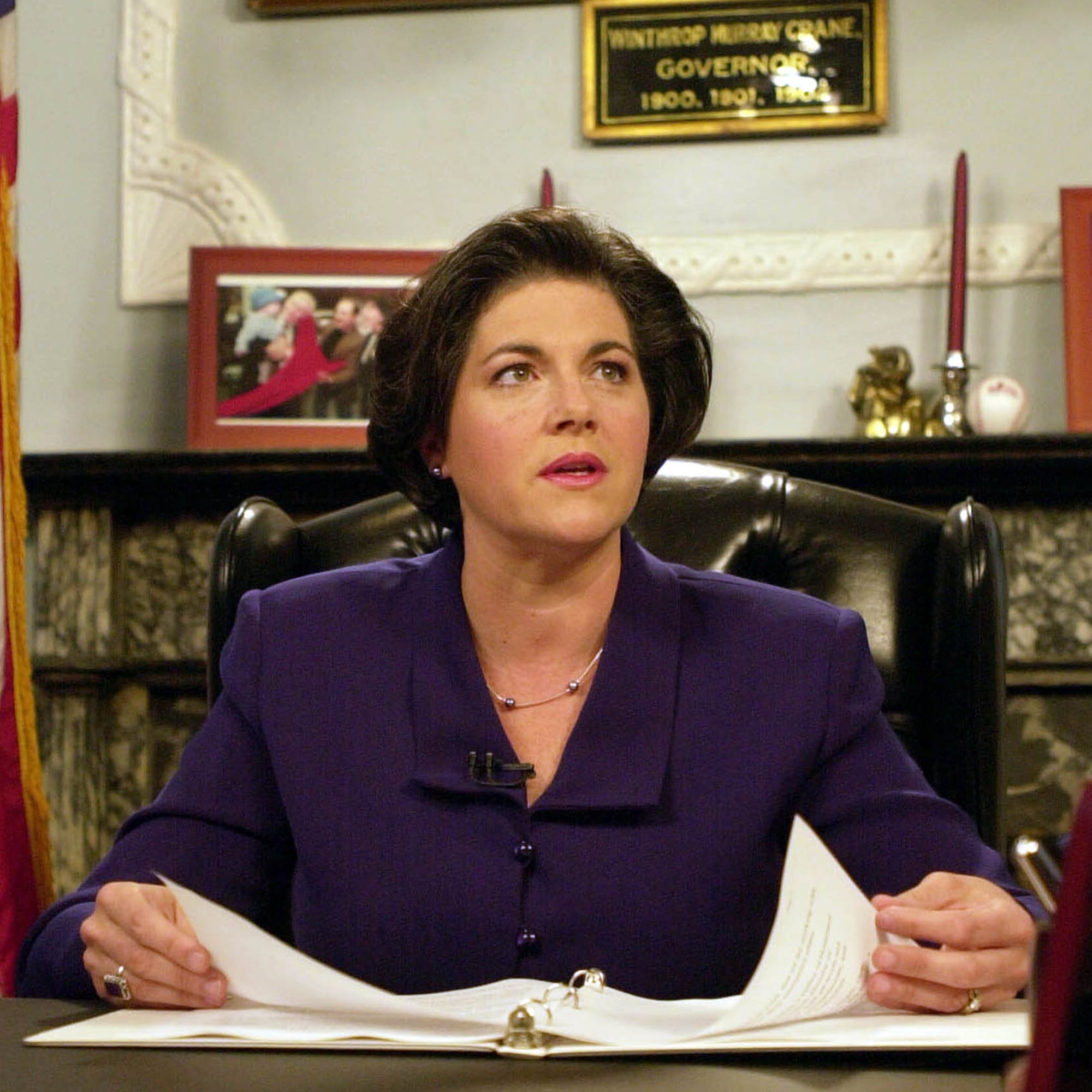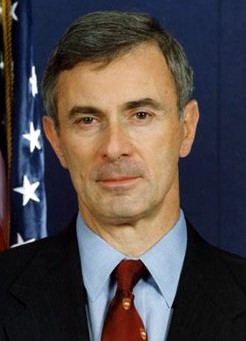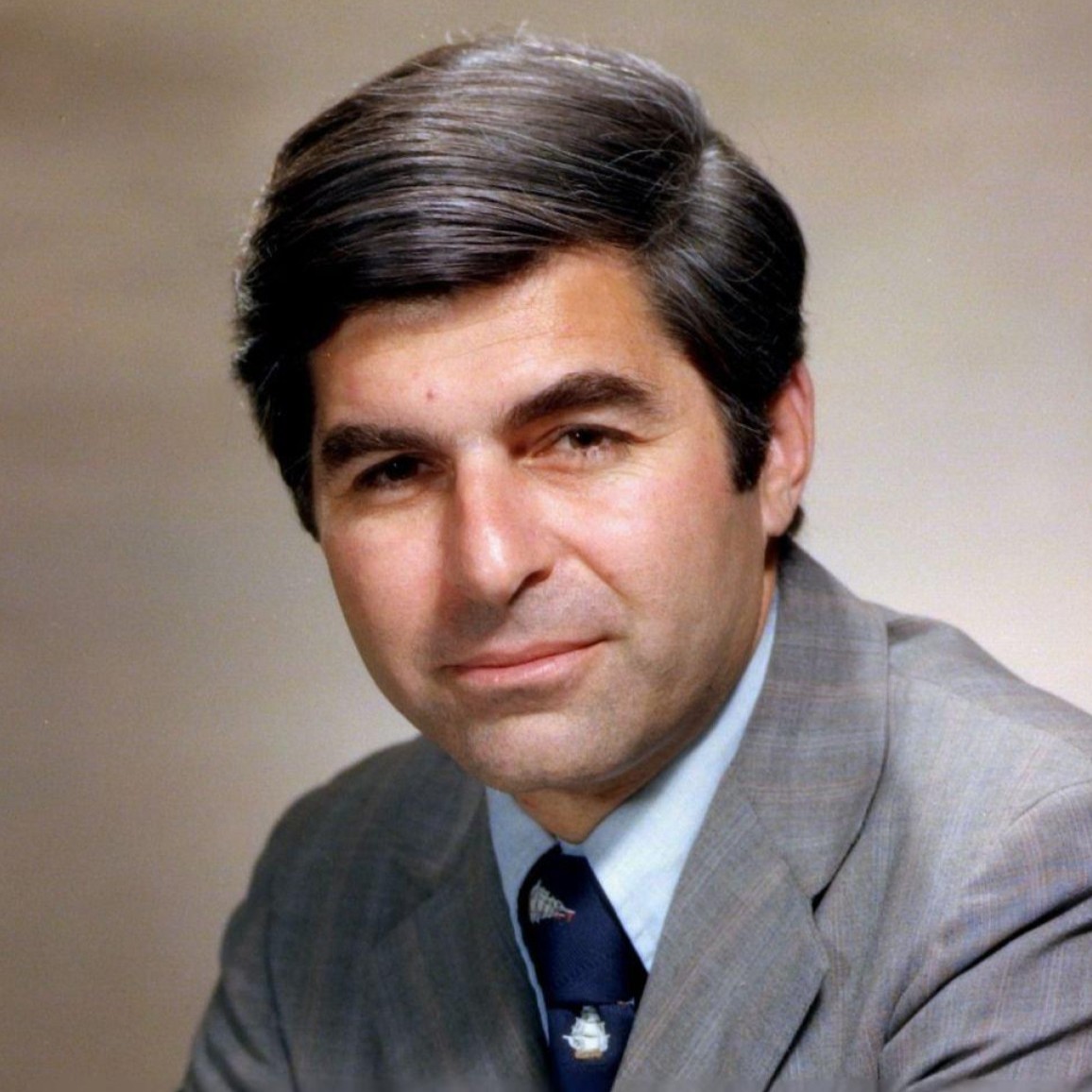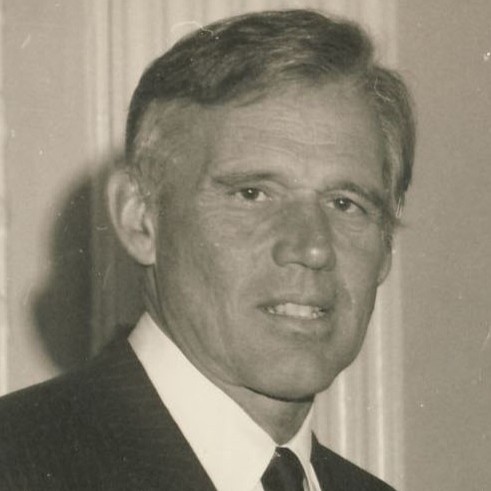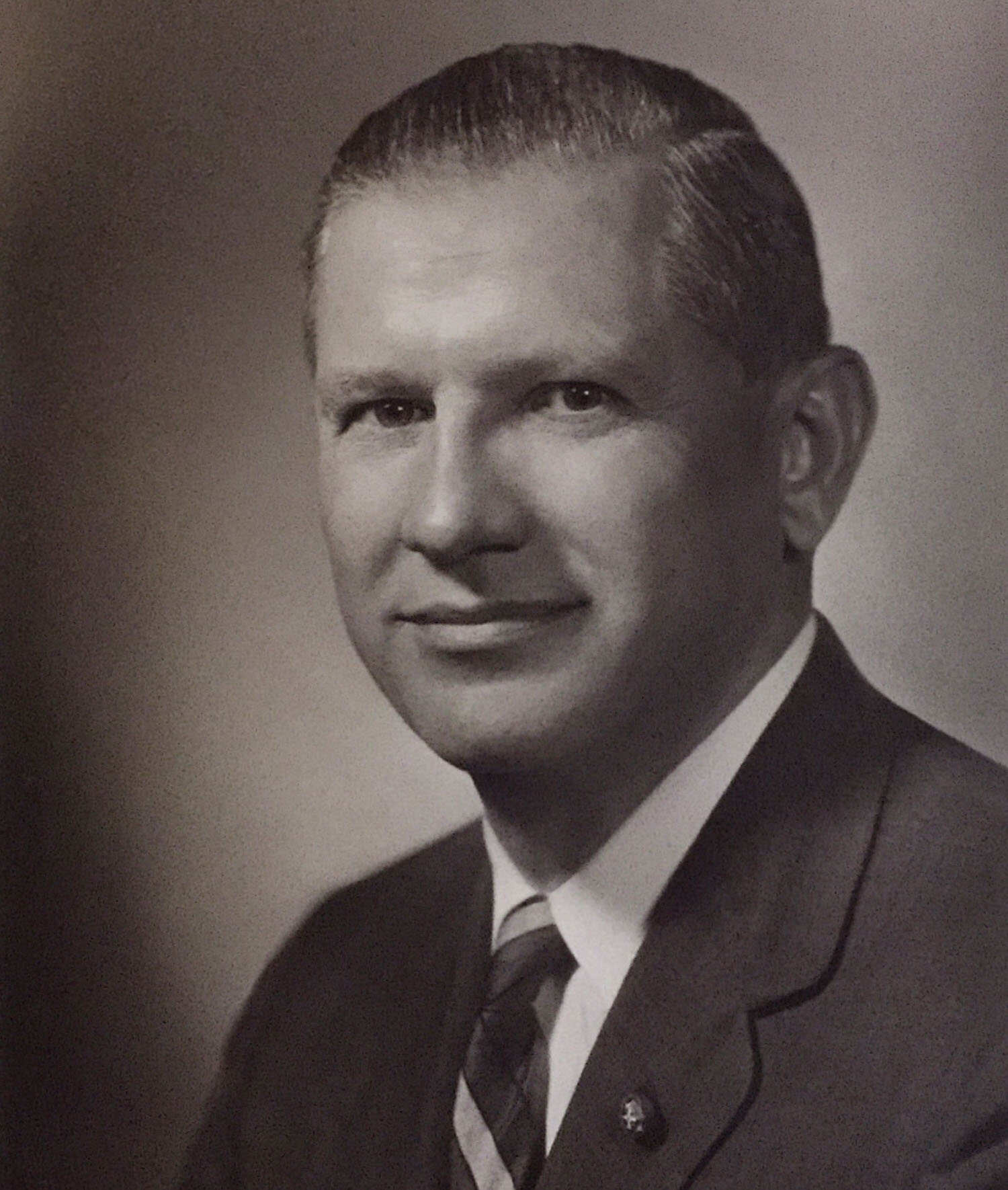Massachusetts
Gov. Edward J. King
- January 5, 1979 - January 5, 1983
- Democratic
- May 11, 1925
- September 18, 2006
- Massachusetts
- Boston College
- Wife Josephine, two sons, Timothy and Brian.
- United States Navy
About
Born on May 11, 1925, in Chelsea, Mass., Edward Joseph King was the second of four children born to Edward and Helen King. The family moved to East Boston when Edward was a boy. Mr. King went to Boston College, where he played football, and after graduation played three seasons of professional football as a lineman for the Buffalo Bills and Baltimore Colts.
In 1959, King became comptroller for the newly formed Massachusetts Port Authority (Massport). On December 23, 1961 he was appointed the port authority’s secretary-treasurer. On June 18, 1963, he was named the Authority’s executive director.
During King’s tenure as executive director, Logan International Airport was transformed into a modern facility. Upgrades were made to the runways and terminals, and the Volpe International Terminal (Terminal E) was built. Under King’s watch, the authority went from a deficit to a surplus. King was also responsible for initiating ferry service to Hingham with the intention of revitalizing the Hingham Shipyard property.
On October 25, 1977, King announced that he would seek the Democratic nomination for Governor. A fiscal and social conservative, he ran as a pro-life candidate and supported capital punishment, offshore drilling, increased nuclear power, greater research on solar energy, less business regulation, raising the drinking age to 21, and mandatory sentences for drug dealers. During his term of office, King froze property taxes, reduced state spending, undertook a variety of efforts to encourage increased business and agricultural opportunities in the Commonwealth, and introduced mandatory minimum sentences.
Following his term of office, Governor King joined the public relations firm of Hill & Knowlton.

